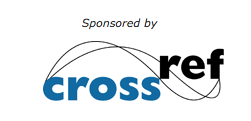Identifiers: New Problems, New Solutions, Part One: What’s in a Name? Latest Developments in Identifiers
About the Webinar

This webinar will take a look at the need for both standard personal and institutional name identifiers in an automated information environment. It will then provide an update from NISO's Institutional Identifiers (I2) working group, and a member of the RLG Partnership Networking Names Advisory Group will address how linked data, the latest spin on the Semantic Web and RDF, relates to identifiers.
Part Two of this webinar, Content Identification: What’s New, will be held on March 17.
Event Sessions
Welcome & System Overview
Introduction
Speaker
Why Name Identifiers
Speaker
Libraries have a long history of using authority records to consistently identify people and organizations and to link variant forms of names within their catalogs. Outside the library catalog these needs have until recently been addressed in other, domain-specific contexts, each with its own rules and conventions (or lack thereof). As web discovery transcends the boundaries surrounding communities and aggregations of information, the range of names encountered becomes ever larger and more diverse, and a broader framework for identification is of vital importance. New problems demand new solutions, and may change the ways we think about identity and authority.
Linking Names
Speaker
Controlling the forms of names has always been of interest to librarians. As local systems now interact with national and global library services, and library services themselves interact with the Web, clearly identifying people is becoming even more important. OCLC is involved in three new initiatives: the Virtual International Authority File (VIAF), the International Standard Name Identifier (ISNI), and the Open Researcher and Contributor ID (ORCID). We discuss what these various systems and identifiers are and how they might fit into the web idea of ‘linked data.’
I2 (Institutional Identifiers) Working Group: Where We Are Now, What's Ahead
Speaker
The information gathering for the planned Standard for Institutional Identification is complete and a compelling argument for its development was received from the information community including libraries, publishers, intermediaries, research funders and institutional repositories. All the data collected from research and questionnaires is now being used to develop the standard itself, including the format and required metadata. The results of the information gathering including business requirements, and the timescales for the standard development will be discussed.
Q&A and Wrap-up
Additional Information
- Registration closes at 12:00 pm Eastern on March 10, 2010. Cancellations made by March 4, 2010 will receive a refund, less a $20 cancellation. After that date, there are no refunds.
- Registrants will receive detailed instructions about accessing the webinar via e-mail the Monday prior to the event. (Anyone registering between Monday and the close of registration will receive the message shortly after the registration is received, within normal business hours.) We ask that registrants please turn off any spam blockers or filters to ensure that the information is received. Registrants unable to access e-mail during that time (out of office, etc.) should contact the NISO office to designate an alternate contact. Any registrant who has not received login instructions by 10:00 am Eastern on March 10 should contact the NISO office at nisohq@niso.org or call 301-654-2512.
- Registration is per site (defined as access for one computer) and includes access to the online recorded archive of the webinar. An unlimited number of participants can view per site. If you are registering someone else from your organization, either use that person's e-mail address when registering or contact the NISO office to provide alternate contact information.
- Webinar presentation slides and Q&A will be posted to the site following the live webinar.
- Registrants will receive access information to the archived webinar following the event. An e-mail message containing archive access instructions will be sent within 48 hours of the event. Archive access is for 365 days following the live event.
Event Dates
–
Registration
Registration closes on
To sign up: If paying by credit card, register online.
/sites/default/files/events/2019-01/Identifiers_Mar10_regform_0.pdfFees
Registration Costs
- NISO Member
- $89.00 (US and Canada)
- $104.00 (International)
- NASIG Member
- $89.00
- Non-Member
- $109.00 (US and Canada)
- $134.00 (International)
- Student
- $49.00
Location
- NISO has developed a quick tutorial, How to Participate in a NISO Web Event. Please view the recording, which is an overview of the web conferencing system and will help to answer the most commonly asked questions regarding participating in an online Webex event.
- You will need a computer for the presentation and Q&A.
- Audio is available through the computer (broadcast) and by telephone. We recommend you have a set-up for telephone audio as back-up even if you plan to use the broadcast audio as the voice over Internet isn't always 100% reliable.
- Please check your system in advance to make sure it meets the Cisco WebEx requirements. It is your responsibility to ensure that your system is properly set up before each webinar begins.